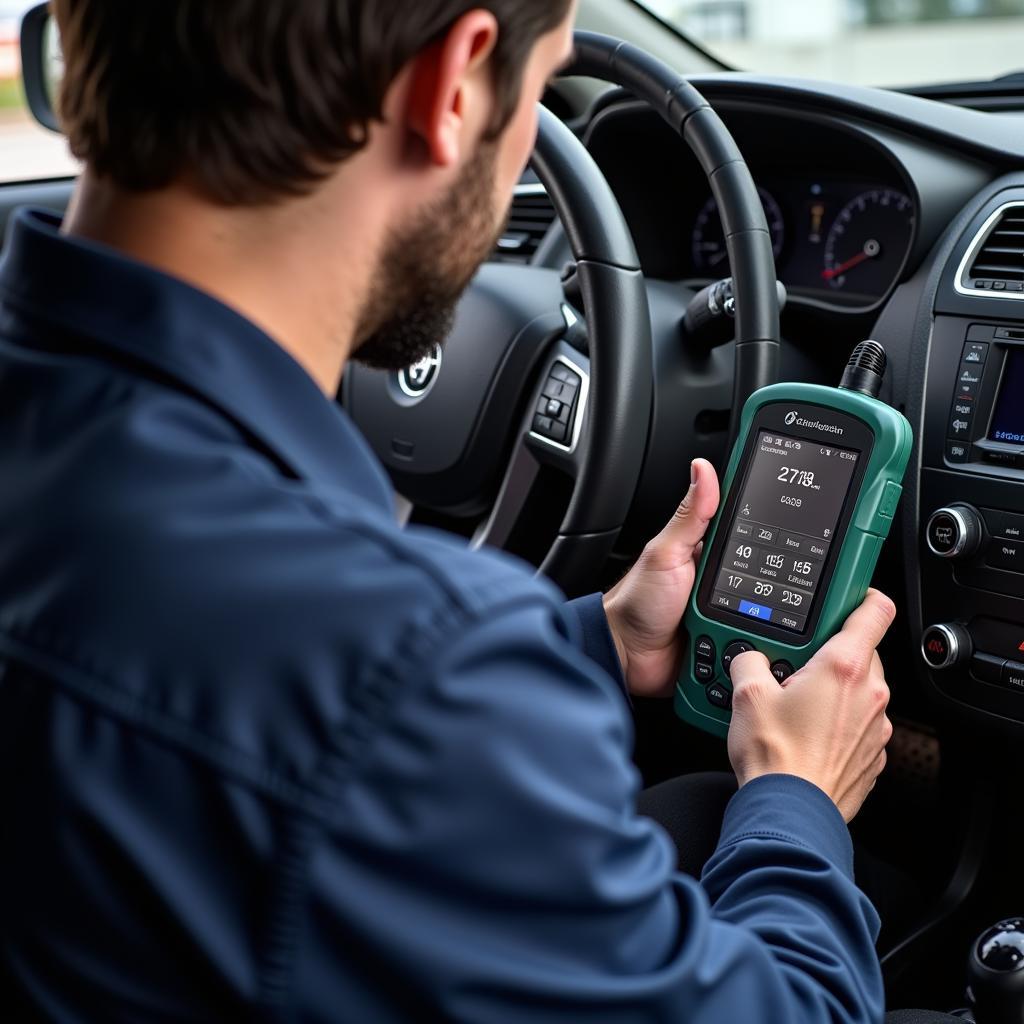A dead car battery is frustrating, but a car battery that won’t stay charged is even more perplexing. This comprehensive guide dives deep into the reasons behind a constantly draining car battery and offers practical solutions, from DIY diagnostics to professional remote software fixes. We’ll explore the common culprits, empowering you to get back on the road quickly.
Understanding Why Your Car Battery Won’t Hold a Charge
A car battery that continually discharges indicates an underlying problem beyond a simple old battery. Several factors can contribute to this issue, ranging from simple fixes to more complex electrical faults. Is your emergency brake warning light constantly on? This could point to a potential issue. Check our guide on emergency brake warning light stays on for further assistance.
Common Culprits: From Bad Alternators to Parasitic Drains
One of the most common reasons a car battery won’t stay charged is a failing alternator. The alternator’s job is to recharge the battery while the engine is running. If it’s not functioning correctly, the battery will continuously drain. Another frequent issue is a parasitic drain, where an electrical component continues to draw power even when the car is off. Even seemingly minor things, like interior lights left on or a faulty glove box switch, can drain your battery over time. If you’ve recently replaced your alternator and battery and your new alternator and battery car still wont start, the problem likely lies elsewhere.
Diagnosing the Problem: A Step-by-Step Guide
Before rushing to replace your battery, follow these steps to pinpoint the problem:
- Visual Inspection: Check the battery for any visible damage, corrosion, or loose connections.
- Battery Test: Use a multimeter to test the battery voltage. A fully charged battery should read around 12.6 volts.
- Alternator Test: With the engine running, the voltage should increase to around 14 volts. If it doesn’t, your alternator may be faulty.
- Parasitic Drain Test: Use a multimeter to measure the current draw with the car off. Anything above 50 milliamps could indicate a parasitic drain. You can find a detailed guide on how to test for parasitic drain on car battery.
Why is my brand new car battery draining?
Even a brand new battery can drain if there’s an underlying electrical issue. This is often a frustrating experience. For more information on this specific issue, you can visit our guide on brand new battery car still wont start.
“A common misconception is that a new battery is immune to draining,” says automotive electrical expert, David Miller. “However, a faulty alternator or parasitic drain can quickly deplete even a brand new battery.”
Solutions and Fixes: DIY and Professional Options
Once you’ve identified the cause, you can explore various solutions. For minor issues like loose connections or corroded terminals, cleaning and tightening can resolve the problem. However, more complex issues like a failing alternator may require professional attention.
 Mechanic Performing Car Diagnostic Scan
Mechanic Performing Car Diagnostic Scan
Remote Software Solutions: A Modern Approach
In today’s technologically advanced world, remote software solutions offer a convenient and efficient way to diagnose and fix certain car battery issues. These solutions allow technicians to access your vehicle’s computer system remotely, identify software glitches, and even reprogram certain modules without needing physical access to the car. If you have a Mini Cooper and are experiencing battery issues, you can check our dedicated guide on mini cooper dead battery.
“Remote diagnostics and programming are revolutionizing the automotive repair industry,” explains Sarah Chen, a leading software engineer specializing in automotive applications. “These technologies enable quicker and more precise diagnoses, saving car owners time and money.”
Conclusion: Keeping Your Car Battery Healthy
A car battery that won’t stay charged can be a sign of a more significant problem. By understanding the common causes and following the diagnostic steps outlined in this guide, you can effectively address the issue and prevent future battery problems. Don’t let a dead battery leave you stranded. Take proactive steps to ensure your car’s electrical system is in top condition.
FAQ: Car Battery Troubleshooting
- How often should I replace my car battery? Typically, car batteries last between 3 and 5 years.
- Can extreme temperatures affect battery life? Yes, both extreme heat and cold can shorten battery lifespan.
- What is a parasitic drain test? It’s a test used to identify electrical components that draw power even when the car is off.
- How can I prevent my car battery from draining? Regularly check for corroded terminals, ensure all lights are off when the car is parked, and limit the use of electronics with the engine off.
- Is it safe to jump-start a car with a dead battery? Yes, but it’s essential to follow the correct procedure to avoid damage to the vehicle’s electrical system.
- What should I do if my car battery keeps dying even after replacing it? This indicates a deeper electrical issue that requires professional diagnosis.
- Can remote software solutions fix all car battery problems? While effective for many software-related issues, they might not solve all hardware problems.



